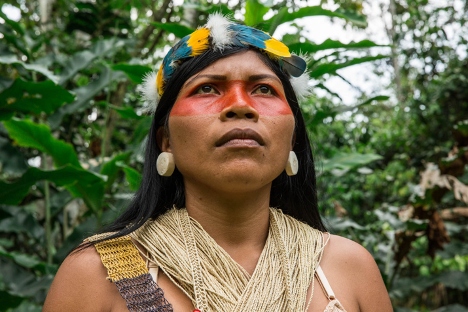Being an environmentalist is a death sentence depending on where you are
Sustainability Editor Flora Dickie discusses the risks that environmental activists take when trying to protect the planet
Environmental activists all over the world stand and fight for the future of the planet, in a most courageous and selfless act, putting themselves at risk of threats, imprisonment, and even death. The number of incidents is particularly worrying in South America where there is such high biodiversity but the people protecting this and their lands are often violently attacked.
A report from ‘Tierra de Resistentes’ in 2019 highlights that Indigenous people face a higher risk of violent attack for opposing extractive industries such as mining and logging. This report also states that over 10 years, there have been more than 1300 attacks on environmental advocates across seven countries in South America and those targeted are considered to be ‘anti-development’ or ‘unpatriotic’.
In addition to these stark figures, the 2018 report from the organisation Global Witness found that 3 people per week were killed for being environmental guardians, activists or protectors. Furthermore, this organisation highlights that not every case is reported, so the number could be much higher.
The most dangerous region for environmentalists is South America, but in 2018 the country with the most deaths of environmentalists was the Philippines. According to the national environmentalist coalition in the Philippines, the mining sector is particularly dangerous. Those who are openly critical of the operations of mining companies are often bullied and threatened.
Indigenous people face a higher risk of violent attack for opposing extractive industries such as mining and logging
The Philippine army has listed various environmentalists as insurgent communists, and with this categorisation, the army can detain, interrogate or arrest them. Additionally, the Philippines has a law in which businesses can request support from the government if they feel threatened. Industry uses this to criminalise and intimidate the defenders of the environment.
The global trend is that the planet’s ecosystems and its people protectors are under severe threat. We are seeing more and more interventions of environmentalist action by police or armed forces as more environmental protections are removed from legislation around the world.
You can support the indigenous people and their territories too by making donations to organisations such as the Rainforest Action Network, Amazon Frontlines, the Ceibo Alliance, and Wahana Lingkungan Hidup Indonesia. You can also advocate for climate and environmental justice by joining Extinction Rebellion and Divest Imperial.






